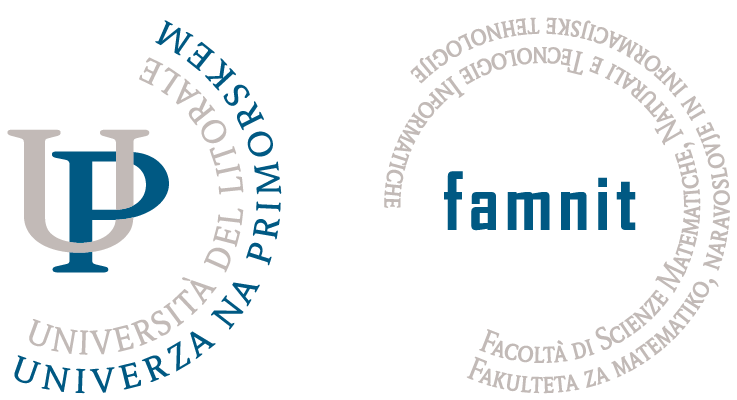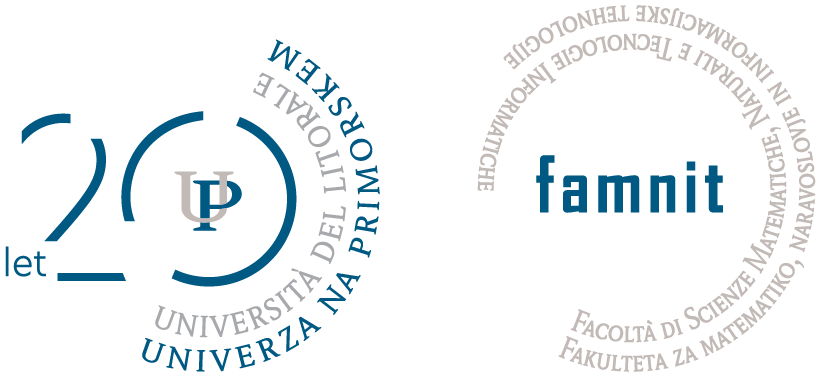At UP FAMNIT, we acquired two new projects within the INTERREG programme Slovenia-Croatia 2021-2027.
»TransPlant: Integral cross-border protection of Natura 2000 plant species and habitats«, partner, UP FAMNIT (lead: Prirodoslovni muzej Rijeka, Croatia), UP leader: dr. Peter Glasnović
The TransPlant – Integral Transboundary Conservation of Natura 2000 Plant Species project aims to develop conservation guidelines and actions for three Natura 2000 plant species: the Dinaric spurge, the Scopoli’s sedge and the Varied cattail. These species thrive in the cross-border area between Slovenia and Croatia, and their long-term conservation requires common conservation strategies. Active conservation measures, both in-situ and ex-situ, based on knowledge of the species’ distribution and an understanding of the impact of climate change in the future, will be used to develop a long-term strategy for their conservation. This will focus on understanding the biology, population genetics and reproductive status of populations. The strategy will be developed in collaboration with stakeholders, space users and the interested public. The project, which will be led by the Natural History Museum of Reka, has been prepared in cooperation with eight partners from Slovenia (Škocjan Caves Regional Park, University of Primorska, Institute for Nature Conservation of the Republic of Slovenia, Scientific Research Centre of the Slovenian Academy of Sciences and Arts) and Croatia (Natural History Museum of Reka – lead partner, Istria County, Matulji Municipality, Risnjak National Park).
»FoRESisT Preservation and evaluation of forest and agricultural ecosystems in the cross-border area FoRESisT«, partners, UP FAMNIT, UP lead: dr. Matjaž Hladnik
The FoRESisT project focuses on the conservation of forest and agricultural habitats, or agroforestry habitats (agroforestry), as well as on opportunities to enhance biodiversity. The project aims to increase the resilience of habitats to a wide range of negative impacts such as fires, droughts, invasive non-native species, diseases, anthropogenic and other factors, and to ensure sustainable management. FoRESisT activities will be carried out in three strands: 1) Analysis of the situation and identification of habitat conservation measures; 2) Implementation of pilot actions to improve the situation and enhance the resilience of selected habitats (e.g. conservation of chestnut forests, downy oak forests, establishment of agroforestry and forest ecosystems typical of karst landscapes), based on common cross-border guidelines; and 3) Educational activities to raise public awareness on the importance of conserving a diversity of habitats. The main outputs and outcomes of the project will include the development of a common cross-border strategy for the conservation of forest and agricultural ecosystems, the establishment of a cross-border network of experts in the field of agriculture and forestry, pilot actions for the protection of ecosystems, and the organisation of public cross-border events, leading to improved cooperation between the different stakeholders and to more effective management of Natura 2000 sites in the cross-border area.
BIODIVMON
BIG_PICTURE, Developing data management and analytical tools to engage and promote citizen science camera trapping initiatives across Europe, partners, UP Famnit, UP leader: dr. Elena Bužan
This project aims to address several of these obstacles to enhance the availability of information-rich data collected by camera traps already being collected across Europe during the last 10-15 years. working with the leading researchers, citizen science groups and stakeholders involved in camera trapping1 of wildlife we aim to identify, and then overcome, the legal, institutional, social, technical and practical barriers to processing, annotating, organising, sharing and analysing the vast amounts of camera trapping data that are being collected every day across the continent.

